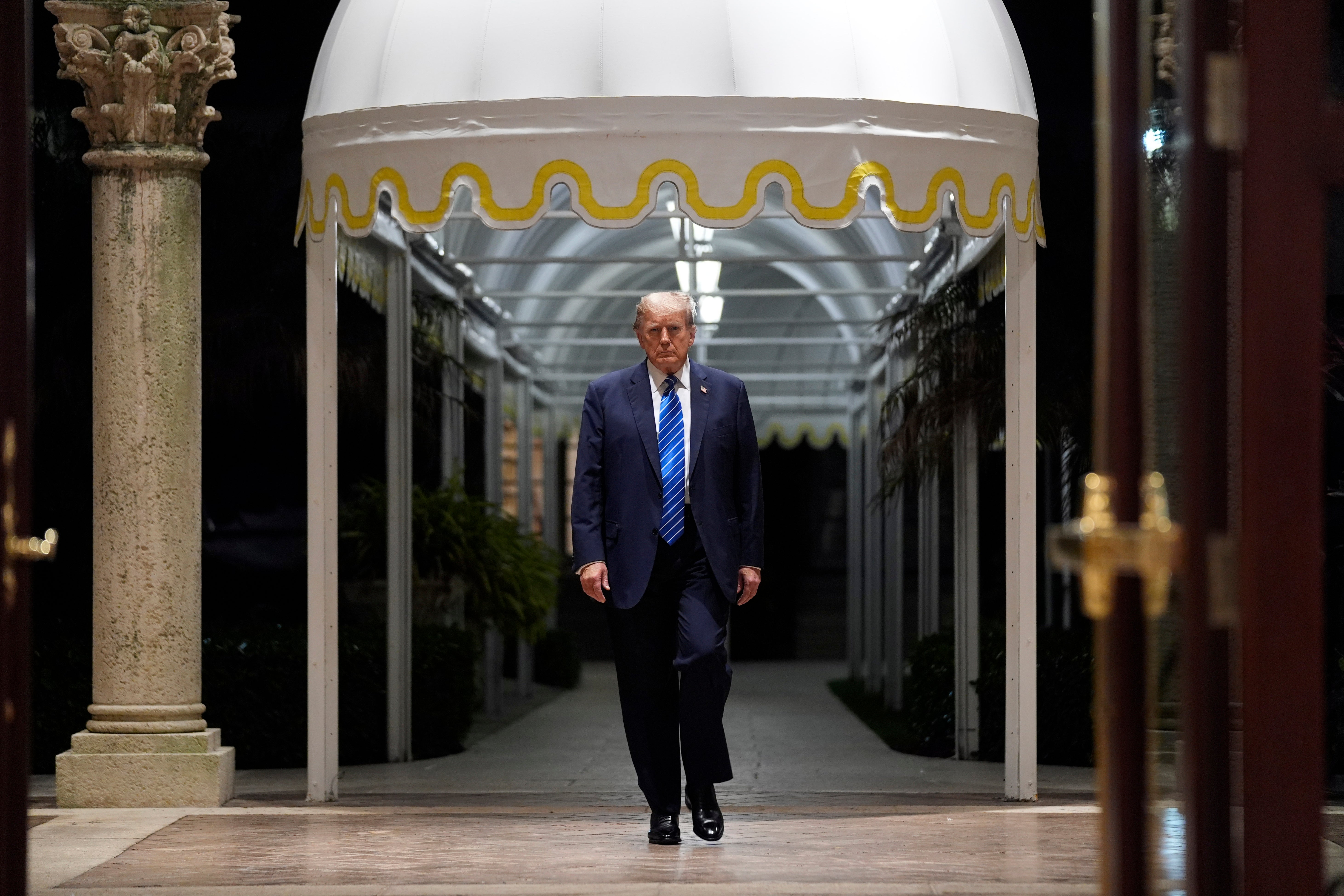Trump judge throws out ex-president’s first attempt to dismiss Mar-a-Lago case
Judge Aileen Cannon dismisses Trump’s claim that the Espionage Act is ‘unconstitutionally vague’
Your support helps us to tell the story
From reproductive rights to climate change to Big Tech, The Independent is on the ground when the story is developing. Whether it's investigating the financials of Elon Musk's pro-Trump PAC or producing our latest documentary, 'The A Word', which shines a light on the American women fighting for reproductive rights, we know how important it is to parse out the facts from the messaging.
At such a critical moment in US history, we need reporters on the ground. Your donation allows us to keep sending journalists to speak to both sides of the story.
The Independent is trusted by Americans across the entire political spectrum. And unlike many other quality news outlets, we choose not to lock Americans out of our reporting and analysis with paywalls. We believe quality journalism should be available to everyone, paid for by those who can afford it.
Your support makes all the difference.A federal judge appointed to the bench by Donald Trump has rejected one of his attempts to dismiss criminal charges stemming from his retention of classified documents stashed at his Mar-a-Lago property.
Just hours after she heard arguments in a federal courtroom in Florida, US District Judge Aileen Cannon dismissed his lawyers’ arguments that 32 charges against the former president under the Espionage Age are unconstitutionally “vague”.
The resolution of the defence’s question “depends too greatly on contested instructional questions about still-fluctuating definitions of statutory terms/phrases as charged, along with at least some disputed factual issues as raised in the motion,” she wrote.
Judge Cannon did, however, leave open the possibility that a jury could consider the “vagueness” argument at trial.
The former president faces a 40-count indictment alleging violations of the Espionage Act, obstruction, and the illegal removal of federal records. His legal team’s motions to dismiss the case add to a growing list of attempts to evade the 91 criminal charges against him in four separate criminal cases in four jurisdictions.
His attorneys also argued to dismiss the case on Thursday on Presidential Records Act grounds.
Mr Trump’s legal team has filed several other motions to dismiss charges in the Mar-a-Lago case, including invoking a presidential “immunity” claim. The judge has not yet set a schedule to hear seven others.
The application of the Espionage Act – which prohibits the willful retention of national defence information – is “unconstitutionally vague” and the term “national defence information” is too broad, according to Mr Trump’s attorneys.
But “Trump fails to explain how his prior status as an original classifying authority has any bearing on whether he could retain classified documents post-presidency, whether or not he had a role in classifying,” prosecutors wrote in court filings.
“You understand, of course, that finding a statute unconstitutionally vague is an extraordinary step,” Judge Cannon told defence attorney Emil Bove on Thursday.
“I understand that it is significant, but it’s warranted here,” he replied.
In a separate filing, Mr Trump’s attorneys previously argued that he had “virtually unreviewable” authority to designate presidential records as personal ones and that the National Archives and US Department of Justice were unauthorised to retrieve records that Mr Trump was given “unreviewable discretion” to label “personal” before he left the White House.
On Thursday, Judge Cannon suggested those arguments are “premature”.
The former president “never” deemed those records as his personal ones, prosecutor Jay Bratt told the judge.
He pointed to a transcript from a recorded conversation in which Mr Trump discussed classified documents at his club in Bedminster, New Jersey.
“Not only is it premature, it never happened,” Mr Bratt said. “He doesn’t say there, ‘I can show you this because it’s personal.’ ... In fact, he’s saying the opposite.”
The judge also appeared sceptical of defence attorney Todd Blanche’s argument that “presidents since George Washington have taken materials out of the White House” at “their own discretion.”
“It’s difficult to see how this gets you to the dismissal of an indictment,” Judge Cannon said.

Prosecutors with the office of special counsel Jack Smith previously argued in court filings that the documents recovered from Mar-a-Lago are “indisputably presidential,” and that the Presidential Records Act (PRA) would still apply to any classified information discovered at his residence. The former president is not charged with violating the PRA.
“Nothing in the PRA leaves it to a president to make unilateral, unreviewable, and perpetually binding decisions to remove presidential records from the White House in a manner that thwarts the operation of the PRA – a statute designed to ensure that presidential records are the property of the United States and that they are preserved for the people,” prosecutors wrote.
Mr Trump is charged with the illegal possession of classified documents at his Florida estate after leaving the White House in January 2021 and for impeding efforts by the US government to reclaim them.
According to the indictment, Mr Trump allegedly attempted to hide boxes of classified documents following a grand jury subpoena that ordered their return.
Mr Trump’s aide Walt Nauta and Mar-a-Lago property manager Carlos de Oliveira were also indicted and have also moved to dismiss the charges against them.
All men have pleaded not guilty.

Join our commenting forum
Join thought-provoking conversations, follow other Independent readers and see their replies
Comments